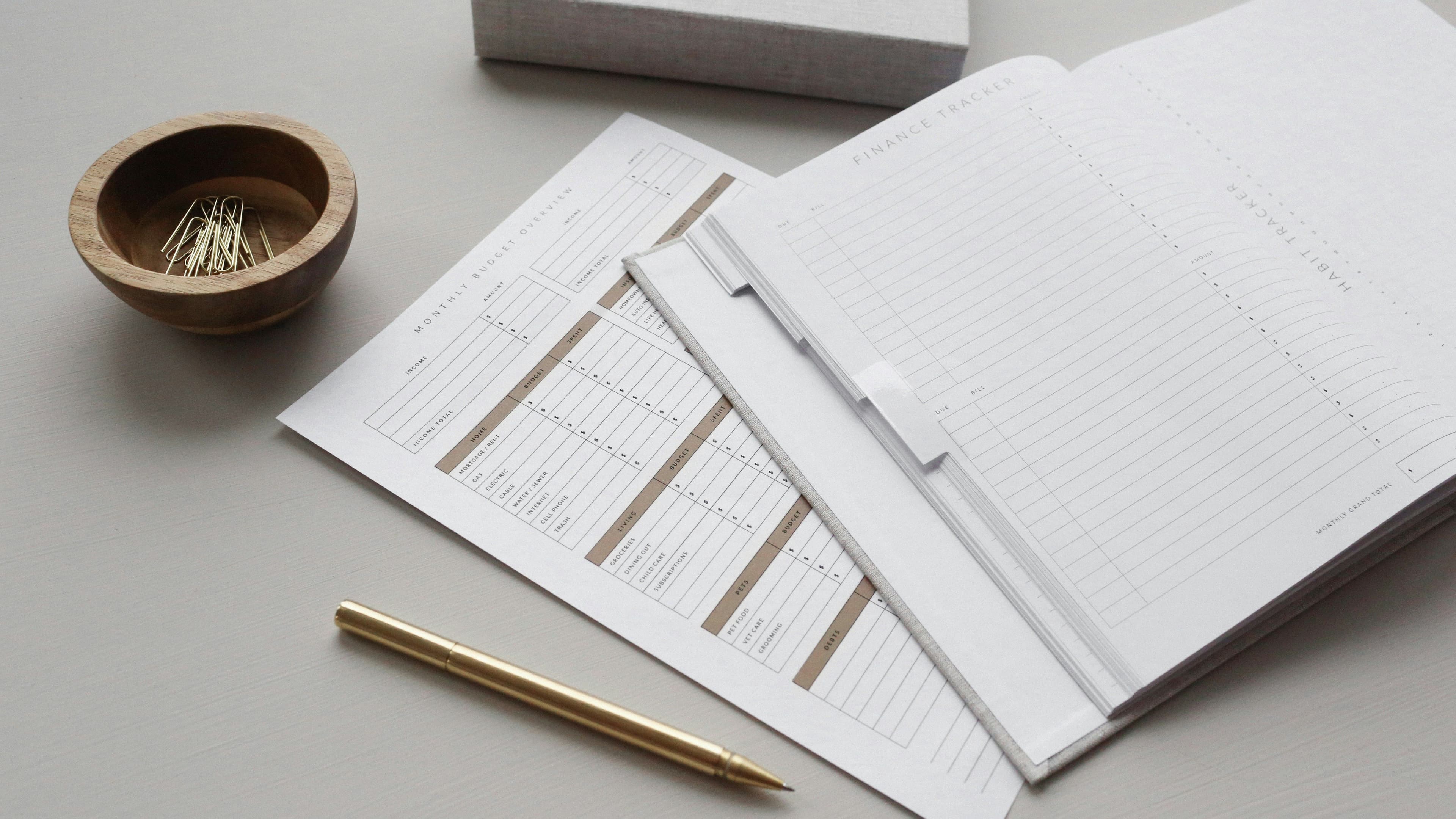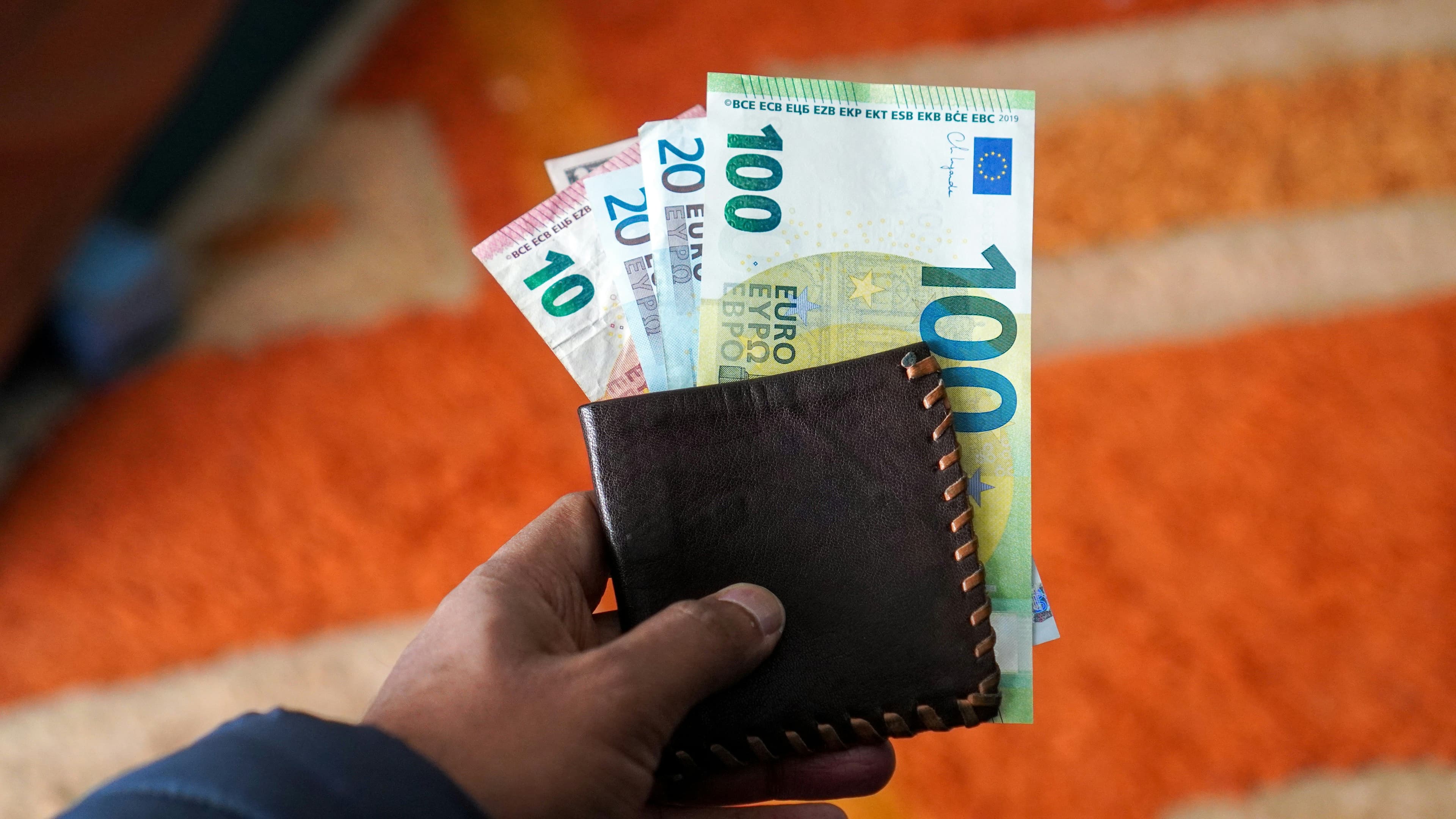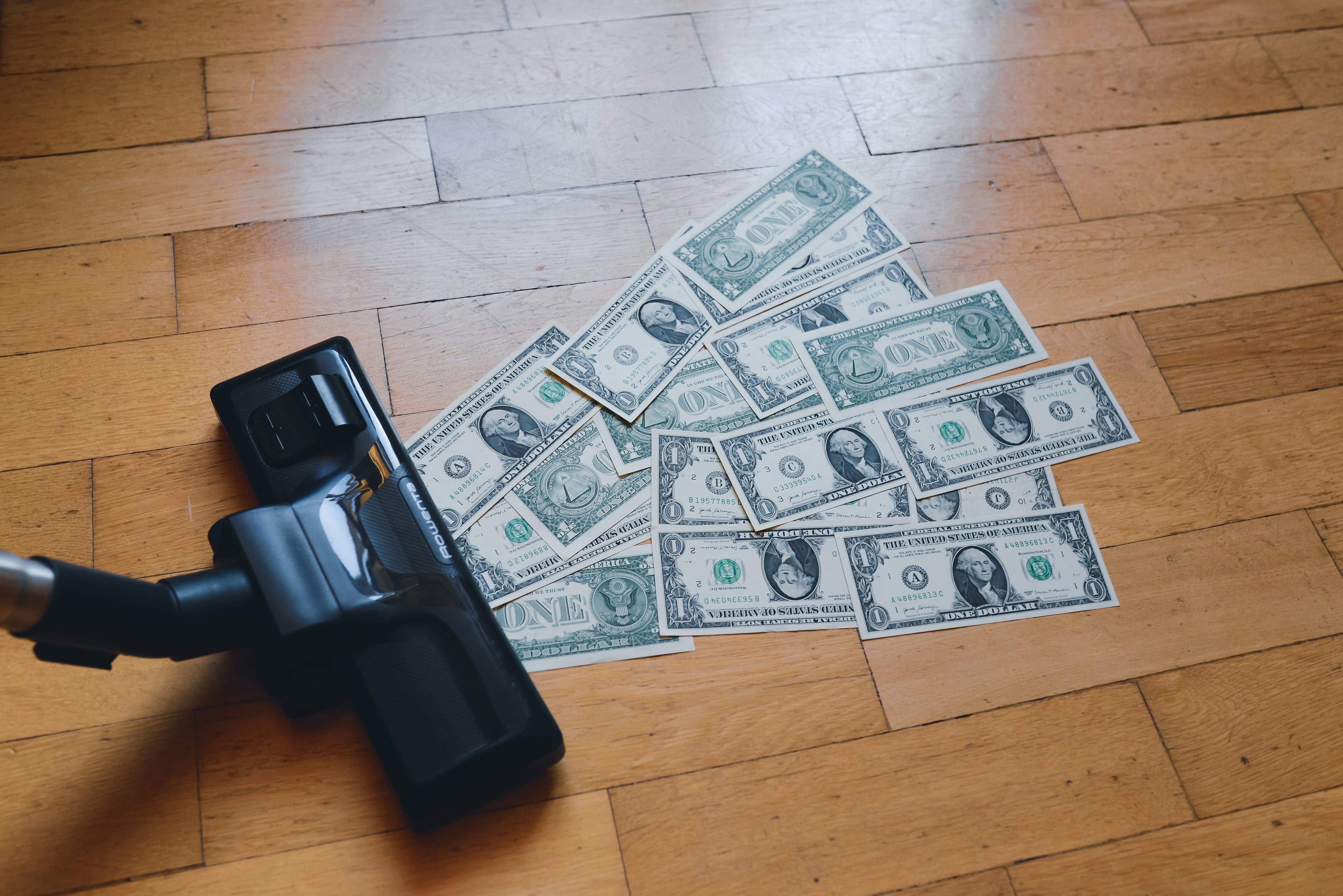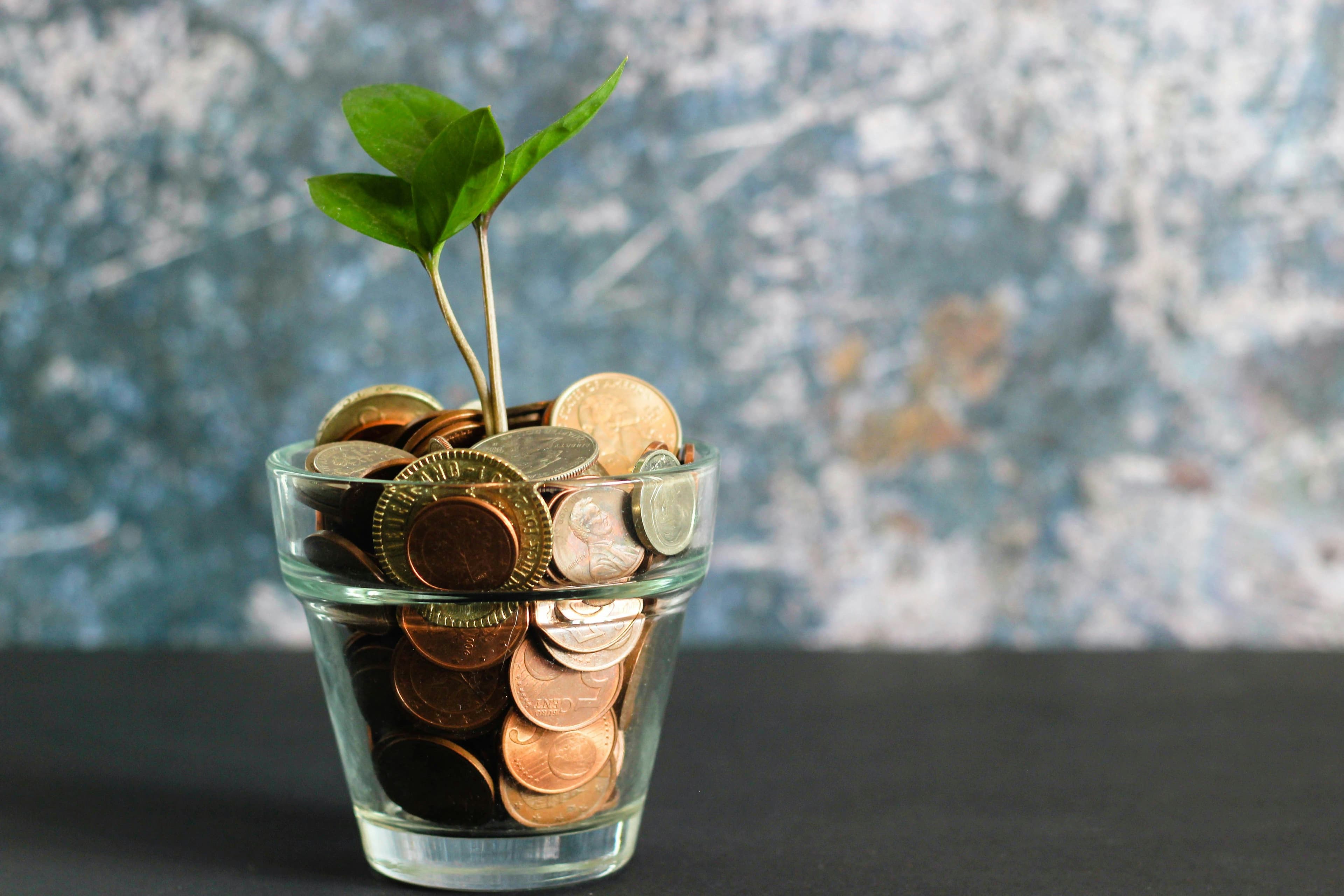How to Budget When Money Is Tight: Emergency Money Guide
Learn to budget when money is tight with practical strategies that work. Real tips from someone who went from broke to financial stability.

God, I still get anxiety thinking about that Tuesday morning in March 2019. I'm sitting in my car after dropping my daughter at daycare, staring at my phone screen showing $23.47 in my checking account.
Twenty-three dollars and forty-seven cents. That's all I had to my name.
Rent was due Thursday: eight hundred and fifty bucks. My car payment was already late by a week and another two ninety-seven. The fridge was basically empty except for some questionable leftovers and half a loaf of bread. And my toddler needed diapers.
I literally sat there shaking, trying to do math that just wouldn't work. No matter how I calculated it, the numbers didn't add up. I was completely screwed and had no idea how I was gonna make it through the week, let alone the month.
All that budgeting advice I'd read online suddenly felt like a sick joke. "Pay yourself first"? With what money exactly? "Save twenty percent of your income?" I was already choosing between keeping the lights on and buying groceries.
That twenty-three dollar moment was rock bottom for me. But it also forced me to figure out how to budget when you literally don't have enough money to budget with. Not the pretty Pinterest budgeting you see everywhere, but the ugly, desperate, "I need to survive this week" kind of budgeting.
Three years later, I've gone from having basically nothing to actually having an emergency fund and not panicking about money every single day. Here's exactly how I did it.
Why Regular Budgeting Advice is Useless When You're Broke
Every budgeting article I'd ever read felt completely insulting when I was staring at that pathetic bank balance. They're all written by people who apparently never had to choose between gas money and groceries.
"Create a monthly budget and track your spending!" Okay, but what if your spending is literally just trying to stay alive? "Use the fifty-thirty-twenty rule!" What rule? Fifty percent of my income was going to rent, thirty percent to everything else I needed to survive, and the twenty percent they wanted me to save? That was negative money.
Here's why normal budgeting advice fails when you're actually broke:
It assumes you have leftover money. Most budgeting systems expect you to have some wiggle room. When you're living dollar to dollar, there is no wiggle room. You're not trying to optimize your finances; you're trying to not get evicted.
It's designed for steady income. All those monthly budget templates assume you know exactly how much you'll make each month. When you're working gig jobs or dealing with unpredictable hours, your income changes constantly.
It ignores the panic factor. When you're constantly stressed about money, you don't make smart long-term decisions. You make whatever decision keeps you alive today. Traditional advice doesn't account for the mental exhaustion of being broke.
It treats debt like a math problem. "Just pay off your highest interest debt first!" Cool, but what if you can't afford the minimum payments on any of your debt? Math doesn't matter when you don't have the money to begin with.
I remember downloading this budgeting app that wanted me to categorize my spending. It had categories like "entertainment," "dining out," and "personal care." I hadn't spent money on any of those things in months! My categories were "rent," "food," "gas," and "pray nothing breaks."
The app kept suggesting I could save money by cutting back on discretionary spending. What discretionary spending? I was already buying the cheapest everything, hadn't eaten at a restaurant since forever, and was using coupons for toilet paper.
That's when I realized I needed a completely different approach. Not wealth-building budgeting, but survival budgeting.
Crisis Mode: How to Survive When There's No Money Left

When you're in a genuine financial crisis, you need strategies that focus on not becoming homeless this month, not building wealth for retirement. Here's what actually works when money is desperately tight.
Figure Out What Gets Paid First (Triage Your Bills)
The hardest lesson I learned: when you can't pay everything, you need a system for deciding what gets paid and what gets ignored. This isn't about credit scores; it's about staying housed and keeping the lights on.
Pay rent first, always. Eviction will destroy your life in ways that take years to recover from. If you're behind, call your landlord immediately. Most would rather work with you than go through eviction proceedings.
Keep the utilities on. Start with electricity because everything else depends on it. Then heat if it's cold, then water. Most utility companies have programs to help people who are behind, but you have to call them before they shut you off.
Keep your transportation working. If you need your car to get to work, prioritize the car payment and insurance. If you lose your car, you might lose your job too.
Food comes next. This sounds obvious, but when money is tight, it's tempting to skip meals to pay other bills. Don't do that. You can't work if you're not eating.
Everything else can wait. Credit cards, personal loans, and medical bills suck to be behind on, but they won't immediately destroy your life. Focus on survival first.
During my worst month, I had to choose between my car payment and credit card bills. I paid for the car because I needed it to get to work. The credit card companies called a lot, but I dealt with that later when I had money coming in again.
Weekly Survival Planning (Because Monthly is Impossible)
Monthly budgeting doesn't work when you're in crisis because a month feels impossible to plan for. I switched to planning week by week, which felt way more manageable.
Every Sunday night, I'd sit down and figure out:
- How much money I actually had for the week
- What bills are due between now and next Sunday?
- How much I needed for gas and basic food
- Whether I could realistically make it to my next paycheck
This kept me from spending money on Monday that I needed for bills on Friday. It also made everything feel less overwhelming; I only had to figure out how to survive seven days.
My Sunday panic session:
- Check bank account (usually while holding my breath).
- Write down every bill due this week.
- Calculate the absolute minimum for gas and food.
- See if there is any way to make extra money this week.
- Make a plan to survive until next Sunday.
Emergency Money-Making When You're Desperate
When your regular income isn't enough, you need ways to generate cash immediately. These aren't long-term strategies, but they can save you when you're about to fall off a cliff:
Sell everything you don't absolutely need. I sold furniture, clothes, books, electronics anything I could live without. Facebook Marketplace became my best friend. I probably made about eight hundred bucks this way, which bought me time to figure out longer-term solutions.
Return anything you recently bought. Dig through receipts and return stuff you bought in the last month that isn't essential. I returned a jacket I'd bought two weeks earlier and used that forty-five dollars for groceries.
Cash out every point and reward you have. Credit card points, store rewards, and cashback apps convert everything to actual money right now. It's not the most efficient use of rewards, but efficiency doesn't matter when you're drowning.
Pick up any gig work that pays fast. DoorDash, Uber, TaskRabbit, babysitting, anything that puts money in your account within days. I did food delivery in the evenings after my regular job and made an extra couple hundred bucks that month.
Ask people you know if they have odd jobs. This is hard because it feels like begging, but most people have stuff they need done. I cleaned out a neighbor's garage for sixty bucks and helped someone move for another forty.
How to Talk to Bill Collectors Without Losing Your Mind
When you can't pay bills, ignoring the problem makes everything worse. I learned to call them before they called me:
Call before you're late if possible. Explain what's happening and ask about payment plans. Most companies would rather get something than nothing.
Be specific about what you can do. Don't just say, "I can't pay." Say, "I can pay fifty dollars now and the rest on the fifteenth when I get my next paycheck."
Get everything in writing. If they agree to a payment plan, ask them to email you the details so there's no confusion later.
Know they can't actually arrest you. Debt collectors love to make threats, but most debt is civil, not criminal. Learn your rights so you don't feel completely powerless.
The worst part about being broke isn't just not having money; it's feeling completely helpless when everyone's calling, demanding payments you literally cannot make.

💡 50 Digital Side Hustle Ideas
Get your free guide packed with 50+ profitable digital side hustle ideas you can start today — even if you're a complete beginner!
We respect your privacy. Unsubscribe at any time.
My Desperate Budget System That Actually Worked
After a few weeks of complete chaos, I developed a budgeting system specifically for when you don't have enough money. It's not pretty, but it works when everything else fails.
Step 1: Calculate Your Absolute Survival Number
Most people have no idea what the minimum amount they need to survive actually is. I had to figure this out:
My non-negotiable monthly expenses:
- Rent: $850
- Electricity: around $120
- Car payment: $297
- Car insurance: $89
- Gas: $160
- Phone: $45
- Absolute minimum groceries: $200
My survival number was $1,261 per month. Knowing this exact number helped me understand how much I absolutely had to earn and what I could cut if things got even worse.
Everything above this number was negotiable. Once survival was covered, I could make decisions about other stuff based on what money was left.
Step 2: Cash Envelopes for Crisis Budgeting
I took the old envelope method and adapted it for survival mode:
Envelope 1: Rent: This got funded first, no matter what else was happening.
Envelope 2: Utilities: Electricity first, then everything else.
Envelope 3: Car stuff: Payment, insurance, gas.
Envelope 4: Food: Groceries only, nothing fancy.
Envelope 5: Whatever's left: Everything else went here.
I used actual cash because when money is this tight, the physical reality of cash helps. You literally cannot spend what isn't in the envelope.
Step 3: Fund Envelopes as Money Comes In
Instead of trying to budget for a whole month, I put money in envelopes as I earned it:
First paycheck: The Rent envelope gets completely filled immediately.
Second paycheck: Utilities and car payments.
Third income: Food and remaining car expenses.
Fourth income: Start saving for next month's rent.
This prevented me from spending rent money on groceries early in the month and then panicking when rent was due.
Step 4: The Five Dollar Emergency Fund
Even when you're completely broke, you can start building tiny safety nets:
Week 1: Save literally five dollars. Hide it somewhere and don't touch it unless you're completely desperate.
Week 2: Add another five dollars. You now have ten dollars, which can cover small emergencies like a prescription or a few gallons of gas.
Month 1: Try to get to twenty-five dollars. This can cover a late fee or basic groceries if you're short.
Month 3: Aim for a hundred dollars. Now you can handle small car repairs or unexpected bills without everything falling apart.
My emergency fund started with loose change I found in my car and couch cushions. Seven dollars and forty-three cents felt ridiculous, but it was something. Six months later, that pathetic fund had grown to about one fifty, which covered a surprise car repair that would have destroyed me otherwise.
Step 5: Preventing the Next Crisis
Once you've survived a few weeks, you can start thinking about preventing future disasters:
Try to diversify your income even slightly. I started doing basic freelance writing for fifty to a hundred bucks a week. Not much, but it helped.
Negotiate every recurring bill. I called my phone company, car insurance, and internet provider. Managed to reduce my monthly expenses by about sixty bucks total.
Start a tiny emergency fund. Even adding five dollars a week adds up. Five bucks a week becomes over two hundred and fifty dollars in a year.
Slowly Crawling Out of the Financial Hole
Moving from crisis budgeting to actual financial stability takes time, but it's possible even if your income doesn't dramatically increase. Here's how I gradually built stability without getting a big promotion or winning the lottery.
Building an Emergency Fund When You Have No Money
Traditional advice says to save a thousand dollars for emergencies. When you're living paycheck to paycheck, a thousand dollars might as well be ten thousand. I started way smaller:
Week 1: Save five bucks. Literally five dollars. Collect change, skip coffee once, and return something small. Just prove to yourself it's possible.
Week 2: Add five more. You now have ten dollars, which feels slightly less ridiculous.
Month 1: Get to twenty-five dollars. This can actually help with small emergencies like a prescription copay or gas money if you're short.
Month 3: Aim for seventy-five to a hundred. Now you're talking about real money that can prevent small problems from becoming big ones.
My emergency fund literally started with pocket change. I collected coins for two weeks and ended up with seven forty-three. It felt stupid, but it was a start. A year later, that tiny fund had grown to about four hundred dollars, which seemed like a fortune compared to where I'd started.

Small Income Increases That Actually Matter
You don't need a career change to improve your situation. When money is tight, even small increases make a huge difference:
Work extra hours if possible. I picked up four extra hours per week at my regular job and made an additional two hundred bucks a month.
Develop tiny side hustles. I started doing social media posts for two small local businesses and earned about one fifty a month.
Sell services instead of stuff. Instead of constantly selling your possessions, sell your time. I offered computer help to neighbors and made a few hundred over several months.
Optimize your tax situation. Make sure you're getting all the credits you qualify for. I discovered I was eligible for the Earned Income Tax Credit and got an extra eight hundred on my refund.
Worth Exploring:
- Passive Income Side Hustles: 9 Ways to Earn Money While You Sleep
- Online Side Hustles for Beginners: 13 Digital Opportunities Requiring No Experience
- Weekend Side Hustles: 10 Ways to Earn $200-800 Every Saturday & Sunday
- Best Side Hustles for College Students: 12 Flexible Ways to Earn $500+ Monthly
Preventing Future Financial Disasters
The goal isn't just surviving this crisis but making sure you don't end up here again.
Watch for early warning signs. I started checking my account balance every morning and tracking spending weekly to catch problems before they became catastrophic.
Save tiny amounts for irregular expenses. Car registration, holiday gifts, and back-to-school stuff—these expenses are predictable but easy to forget about.
Invest small amounts of time in skills. I spent thirty minutes a day learning about digital marketing, which eventually led to better income opportunities.
Don't burn bridges. Maintain relationships with coworkers, former colleagues, and anyone who might know about opportunities.
Real Stories From People Who Made It Through
Let me share some honest examples of people who used these strategies to get from crisis to stability. These aren't overnight success stories; they're slow, gradual improvements that actually last.
Maria: Single Mom Who Avoided Eviction
Starting point: Maria worked retail for twenty-four thousand a year with a four-year-old daughter. She was two months behind on rent, had four hundred in credit card debt, and had zero savings.
The crisis months: Used weekly budgeting to avoid eviction. Sold personal stuff for three hundred to catch up on rent. Started picking up extra shifts when her mom could watch her daughter.
Slow improvement: Built up a seventy-five dollar emergency fund over six months. Got on a payment plan for credit card debt. Started cleaning houses on weekends for extra money.
Where she is now: Working as a medical billing specialist making thirty-two thousand. Has about eight hundred in emergency savings and is almost done paying off debt.
How long it took: About eighteen months to go from crisis to basic stability.
James: Unemployed Construction Worker
Starting point: Lost his job and was unemployed for three months. Burned through savings, behind on his car payment, considering bankruptcy.
Survival mode: Made about eight hundred a month doing odd jobs, delivery driving, and selling tools. Negotiated with his car loan company to avoid repossession.
Getting back on track: Found part-time construction work making eighteen hundred a month. Kept doing side gigs for extra income. Started saving twenty-five bucks a week when possible.
Current situation: Back to full-time work making forty-two thousand a year. Has about twelve hundred in emergency savings.
Timeline: Fourteen months to recover from the unemployment crisis.
Sarah: Drowning in Credit Card Debt
Starting point: Eight thousand in credit card debt, missing minimum payments, making twenty-eight thousand as customer service.
Crisis management: Used survival budgeting to cover essentials first. Called credit card companies to set up payment plans. Started selling crafts online for extra income.
Debt payoff phase: Put every extra dollar toward debt while keeping a fifty-dollar emergency fund. Craft business grew to about four hundred a month extra.
Current status: Completely debt-free except for her car. Has fifteen hundred in emergency savings.
How long it took: Two full years to go from debt crisis to financial peace.
What These Stories Have in Common
People who successfully got out of financial crises shared these patterns:
They focused on survival first. No one tried to build wealth while they were drowning. They focused on making it through each week.
They took tiny actions consistently. Five-dollar emergency fund contributions, thirty minutes of skill development, and one extra gig per month.
They adapted their systems as things improved. Started with weekly budgeting, gradually moved to monthly as income got more stable.
They kept a crisis mindset even after things improved. They remembered how bad it felt to be broke and didn't want to go back.
Realistic timelines: Most people needed twelve to twenty-four months to move from true crisis to basic stability. Big improvements happened gradually.
Stuff That Actually Helps When You're Desperate
When money is tight, you need resources that are free, available immediately, and actually useful. Here are the ones that made a real difference when I was struggling.
Government Programs That Actually Work
Dial 2-1-1: Seriously, just dial these three numbers from any phone. They connect you with local assistance programs. They helped me find food banks and emergency rent assistance.
SNAP (Food Stamps): Even if you think you won't qualify, apply anyway. When my income dropped, I qualified for one hundred eighty a month in food assistance, which freed up cash for other bills.
LIHEAP: This is energy assistance for low-income people. They helped me pay a two-hundred-dollar electric bill when I was behind.
Local food banks: Most don't require any paperwork or income verification. I used food banks twice during my worst period and felt no shame about it.
Community action agencies: These often provide emergency help with rent, utilities, and other critical expenses. I got three hundred toward rent during my worst month.
Apps That Actually Save Money
Mint: Tracks your spending automatically so you can see where your money is going. Free and helpful for finding spending leaks.
Honey: Browser extension that automatically finds coupon codes. Saved me thirty to fifty bucks a month on stuff I had to buy anyway.
GasBuddy: Finds the cheapest gas near you. When every dollar matters, this stuff adds up.
Flipp: Shows you sales at different grocery stores so you can find the best deals.
Places to Get Emergency Money Help
Salvation Army: Provides emergency financial help for rent, utilities, and other needs. Helped me with a one-fifty electric bill.
Local churches: Many have emergency assistance funds for community members, regardless of whether you attend.
Modest Needs: Online nonprofit that gives small grants for emergency expenses. I applied but didn't get funding, but other people have had success.
Quick Ways to Make Extra Money
Plasma donation: If you're healthy, you can make fifty to a hundred bucks a week donating plasma. I did this for three months.
Temporary agencies: Can get you work within a few days, even if it's just short-term.
Gig apps: DoorDash, Uber, and TaskRabbit can get you earning money within a week of signing up.
Day labor: Many cities have day labor centers where you can find same-day work.
Worth Exploring:
- 20 Best Freelancing Sites to Land Your First Client in 2025
- How I Went From Panicking About Bills to Making $7,000+ Every Single Month
Mental Health Resources
Being broke is incredibly stressful. These resources help:
Crisis Text Line: Text HOME to 741741 for free crisis counseling when you're overwhelmed.
Local mental health centers: Often provide sliding-scale counseling based on income.
Employee assistance programs: If you have a job, check if they offer free counseling services.
Your Month-by-Month Survival Guide
When you're in financial crisis, you need a plan you can start implementing today. Here's exactly what I did during my worst period.
Week 1: Stop the Bleeding
Days 1-2: Face the reality
- Figure out exactly how much money you have right now.
- List every bill due in the next thirty days.
- Identify any money that's owed to you or items you can return.
- Apply for any emergency assistance you might qualify for.
Days 3-4: Triage your bills
- Call creditors about any bills you can't pay on time.
- Set up payment plans before you're late if possible.
- Research local emergency assistance programs.
- Apply for food stamps or other government help.
Days 5-7: Generate emergency cash
- Sell anything you don't absolutely need.
- Return recent purchases you can live without.
- Sign up for gig work that pays quickly.
- Cash out any points, rewards, or cashback you have.
Goal for week 1: Survive the immediate crisis and buy yourself time.
Week 2: Set Up Systems
Days 8-10: Start weekly budgeting
- Switch from monthly to weekly budget planning.
- Set up cash envelopes for essential expenses.
- Create a Sunday budget planning routine.
- Start tracking daily spending.
Days 11-12: Increase income
- Ask for overtime at your current job.
- Apply for part-time work or side gigs.
- Ask friends and family about odd jobs.
- Look into better-paying opportunities for later.
Days 13-14: Cut expenses
- Call service providers to negotiate lower rates.
- Find cheaper alternatives for recurring expenses.
- Plan grocery shopping around sales and coupons.
- Cancel any subscriptions you can live without.
Goal for week 2: Set up systems that will prevent future crises.
Week 3: Build Tiny Buffers
Days 15-17: Start emergency fund
- Save literally any amount; even five dollars counts.
- Look for loose change and small income sources.
- Set up automatic savings of one to five dollars per week if possible.
- Start building small buffers in your essential expense categories.
Days 18-19: Manage relationships
- Stay in touch with creditors if you have payment plans.
- Connect with community resources and assistance programs.
- Build relationships with people who might have occasional work.
- Join support groups or online communities for people in similar situations.
Days 20-21: Learn and grow
- Spend thirty minutes a day learning marketable skills online.
- Update your resume and job search profiles.
- Research training programs available in your area.
- Network with people in industries you're interested in.
Goal for week 3: Start building a foundation for longer-term improvement.
Week 4: Plan for the Future
Days 22-24: Evaluate what's working.
- Review which strategies have been most helpful.
- Adjust your systems based on what you've learned.
- Plan for upcoming expenses and irregular bills.
- Identify your most effective income and savings strategies.
Days 25-26: Set realistic goals
- Make plans for the next three to six months.
- Research better job or income opportunities.
- Plan small steps toward improving your situation.
- Consider what skills might lead to better opportunities.
Days 27-28: Prevent future crises
- Set up early warning systems for financial problems.
- Create backup plans for common setbacks.
- Build relationships and resources for future emergencies.
- Document what you've learned for future reference.
Days 29-30: Assess and plan ahead
- Calculate how much your situation has improved.
- Identify what worked best for your specific situation.
- Plan your focus for the next thirty days.
- Celebrate any progress you've made.
Daily Habits That Make a Difference
Every morning (five minutes):
- Check your bank balance.
- Review what you need to spend today.
- Make sure you have transportation and food figured out.
Every evening (ten minutes):
- Write down what you spent.
- Plan tomorrow's expenses.
- Look for ways to save money tomorrow.
- Add any loose change to your emergency fund.
What Success Looks Like After 30 Days
After thirty days, success doesn't mean you're financially secure. It means you're not in panic mode anymore and have systems to gradually improve.
Realistic outcomes after one month:
- Emergency fund of twenty-five to a hundred dollars.
- Weekly budgeting system that prevents crisis.
- Extra income of one hundred to five hundred per month.
- Reduced monthly expenses through negotiations.
- Clear plan for continued improvement.
Signs you're ready for the next phase:
- You can pay essential bills on time.
- You have at least fifty dollars in emergency savings.
- You're earning more or spending less than thirty days ago.
- You feel less panicked about money decisions.
Final Thoughts: You Can Get Through This
Getting from financial crisis to stability isn't about dramatic changes or perfect budgeting. It's about taking small actions consistently while preventing future emergencies.
These strategies aren't exciting; there's nothing glamorous about saving five dollars a week or eating beans and rice. But they work because they're designed for real financial crises, not theoretical budgeting scenarios.
I went from twenty-three dollars and forty-seven cents to having actual savings and not lying awake at night worried about money. It took time and a lot of small actions, but it's completely possible.
The most important thing is starting somewhere. Whether that's saving one dollar, calling one creditor, or selling one thing you don't need, small actions add up to big changes over time.
Your financial situation doesn't define who you are or what your future looks like. You can get through this, one week at a time.
About The Author

SEO consultant
Austin, USA
Maya Rodriguez is an SEO consultant and digital marketing strategist with over 12 years of experience helping businesses improve their online visibility and organic traffic. Based in Austin, Texas, she's worked with over 50 clients ranging from local startups to Fortune 500 companies, achieving an average organic traffic increase of 180% across her client portfolio... Full bio
You might also like




